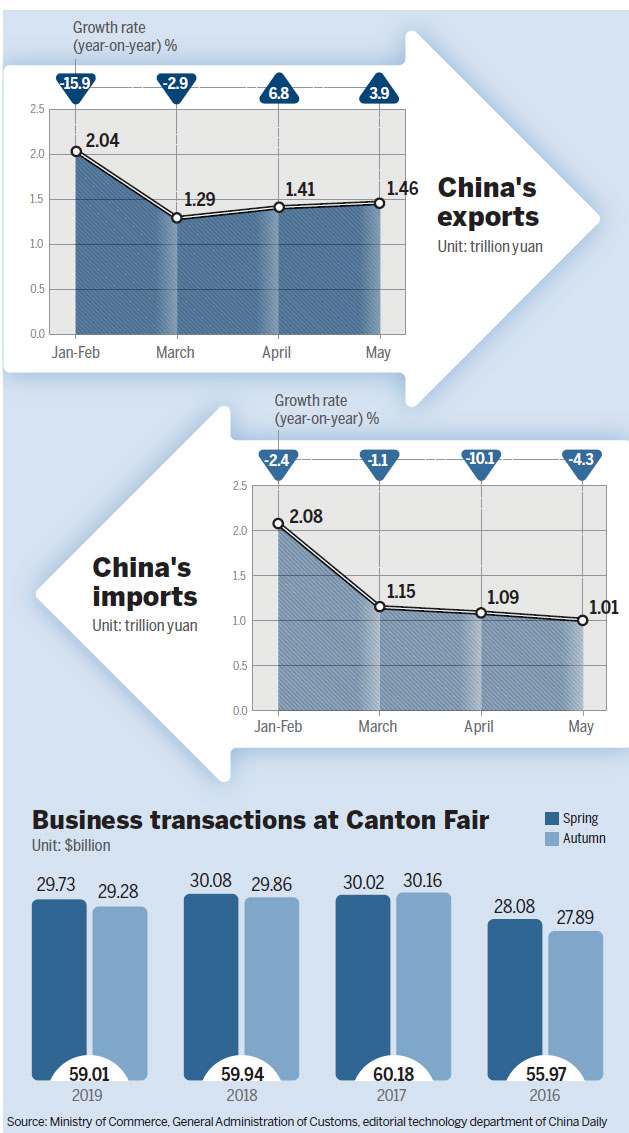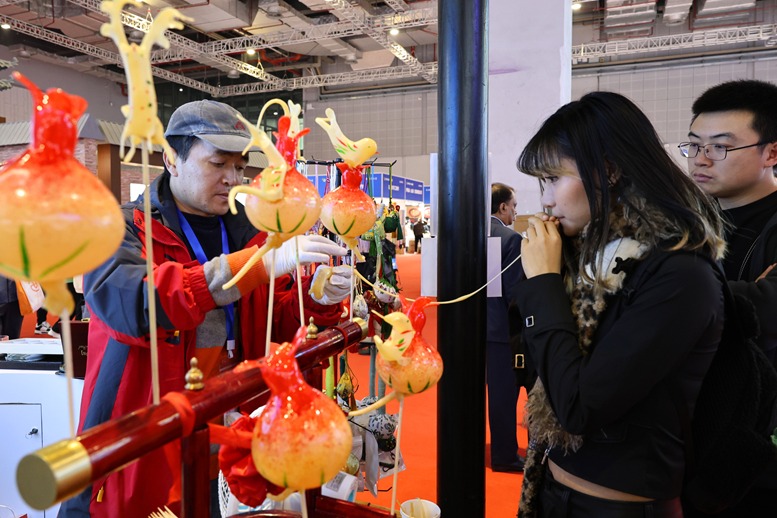Canton e-Fair revives global supply chain


As the sole official technology partner for the digital mega-expo, Chinese internet giant Tencent Holdings Ltd provided technological support to ensure the event is efficient, productive and secure.
The group's products and solutions supported virtual meetings, instant messaging and 24-hour livestreaming. These helped exhibitors and buyers alike to connect seamlessly, transcending the limitations placed on in-person meetings by COVID-19.
Unlike mass livestreaming for consumer products where consumers interact with online hosts in a public domain, online interactions between prospective buyers and Canton exhibitors are encrypted to protect their privacy and enhance efficiency, said Yan Min, a Tencent product manager responsible for the fair's digital solution package.
"The instant messaging tool is backed by simultaneous translation services developed in-house. Virtual meetings allow 300 people to participate in real time, and these can support online contract signings if needed," she said.
Mohamed Sabry, chairman of the Alexandria Business Association of Egypt, said the digital Canton Fair is a rare opportunity for Egyptian buyers. It will not only help Egyptian buyers improve sourcing efficiency and save on costs but set up a platform for Egyptian and Chinese entrepreneurs to communicate with each other in another format. Besides, it will provide new opportunities for the development of bilateral economic and trade cooperation during the current tough period.
China-Egypt economic and trade relations have been enjoying a sound momentum of development. Bilateral trade amounted to $13.2 billion in 2019. Every session of the Canton Fair typically attracts more than 2,500 Egyptian buyers, said officials of the Guangzhou-based China Foreign Trade Center.
Owing to the pandemic, the World Trade Organization expects this year's global trade to fall by between 13 percent and 32 percent. The epidemic is also taking a toll on the world's second-largest economy. China's foreign trade in goods dropped by 4.9 percent year-on-year to 11.54 trillion yuan ($1.63 trillion) in the first five months, Customs data showed.
Taking the Canton Fair online is not only a flexible measure to deal with the pandemic but an innovative way to upgrade the traditional fair, as the internet and smartphones already play a big role in people's lives and business activities, said Zheng Jianrong, director-general of Guangdong's provincial commerce department.
Zheng said his department sent out invitations to buyers from economies related to the Belt and Road Initiative and also to member-states of the Association of Southeast Asian Nations to facilitate new global trade opportunities.
This year's online expo will continue to drive trade cooperation between China and markets related to the BRI to a new high, said Zhang Li, deputy director-general of the department of foreign trade under the Ministry of Commerce.
He said buyers from the BRI markets have accounted for 45 percent of total buyers at the annual event in recent years, and that figure will continue to grow.
Schumann of the German chamber said despite the decisive role the exhibition industry played in both countries, the German industry is facing severe challenges posed by the pandemic and many large-scale exhibitions in Germany have been canceled or postponed. They would now draw inspiration from the successful online Canton Fair, he said.
In addition to waiving exhibition fees for companies to cope with the impact of the pandemic, the Canton Fair lowered entry fee for many sessions. It also relieved pressure by waiving booth fee for enterprises from poverty-stricken areas. This would have saved over 2 billion yuan for enterprises, according to its organizer.
Even after COVID-19 is subdued, the online dimension should be made an integral part of the Canton Fair, said Liu of Double Fish Sporting."It should be preserved as part of the physical event in the future. The e-fair will solve many issues like distance."




































